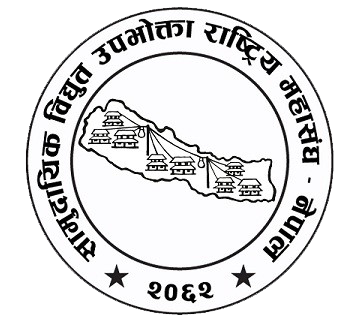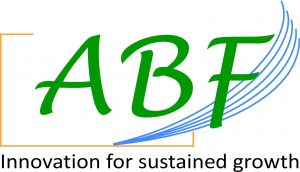The National Association of Community Electricity Users-Nepal (NACEUN) is a national federation of Community Rural Electricity Entities (CREEs). Since its establishment in 2005 under the NGO registration act, NACEUN has grown into a strong network comprising of over 300+ CREEs from 55 districts in Nepal. There are 17 district chapters and 6 province chapters of NACEUN.
Currently, 5,50,000 households have been electrified by these community rural electrification programs. Likewise, 1,50,000 additional households will have electricity access after completion of under-construction projects in different districts.We are committed to ensuring a future where every Nepali, irrespective of caste, gender, and position in the community has access to clean, affordable, and reliable electricity and the members benefit from its productive end-use.
With a strong collaboration with the Nepal Electricity Authority (NEA), the electric power utility that runs under the supervision of the Government of Nepal, NACEUN has been trying to electrify the unsophisticated distant and inaccessible communities of rural Nepal. The Community Rural Electricity Entities (CREEs) are formed under the enthusiastic participation of the community. The infrastructure for electrification is constructed with a share contribution of 10% out of the total estimated budget by the CREE, and the remaining 90% by the NEA. The CREEs regulate electricity distribution services to their consumers independently after the infrastructure is handed over to them. These CREEs buy electricity from NEA in bulk, and distribute it to remote consumers. This allows the locals to get connected to technologies thus opening a gateway to better local employment that ultimately contributes to the GDP of the country. People that were relying on primitive technologies could now adopt modern technologies as a way of living. NACEUN has also been helping the Nepali society by reaching out to the disadvantaged, underprivileged communities of the CREEs with an intention to raise awareness and sensitize them in regards to the modern technologies, livelihood, social taboos, health, and environmental conservation.
NACEUN is a nationally renowned network of community-owned energy distribution institutions. We have established a remarkable presence in the energy sector of Nepal extending our position in government’s influencing committee like Electricity Tariff Fixation Committee as well as in the steering committee of the Community Rural Electrification Department (CRED) NEA. The role of NACEUN starts right from the electrification process to capacity building, strengthening, sheltering, and supporting the CREEs. We promote these programs in the unsophisticated and inaccessible corners of the country. Moreover, policy review, research, lobby, advocacy for reform are other important regular activities of NACEUN. We have been working on promoting productive end-use of clean energy through enterprise promotion and increasing per capita consumption of energy. NACEUN also advocates for enabling policies by collaborating with different agencies keen on similar interests.
Community-Based Rural Electrification Program in Nepal
Electricity is an absolute necessity for development. The country’s first hydroelectric power plant, popularly known as the Pharping Power House (500 KW) started generating electricity in August 1911 A.D. The ensuing pace of generating electricity has been slow – the next plant Sundarijal (600 KW) came on-line only in 1934 and by 2010 only 680 MW or so had been developed. Almost 60 percent of Nepalis had no access to electricity. In rural areas, the figures were in the order of a staggering 90 percent. Thus as a milestone, the Community Electrification Distribution Bylaws-2060 was approved by the NEA board in May 2002. This offered an opportunity for individual entrepreneurs and community user groups to buy electricity in bulk from the NEA and manage the distribution service as a community entity. Community Electrification Distribution Bylaw’s first goal was to promote people’s participation in rural electrification, distribution, and management in an organized way. Secondly, it ensured that 80 percent of investment is contributed by the Government of Nepal (GoN) and the remaining 20 percent by the consumers. This inspired many entrepreneurs and community groups to work along the lines of community electrification and provide a better life in which economic activity attains momentum by self-managing and distributing the electricity for their benefit. This bylaw was subsequently amended in 2008, and now GoN invests 90 percent of the project cost and the community/consumers need to invest only 10 percent.
Until the present, 5,35,000 households (HHs) have been electrified under this Rural Electrification program and 150,000 HHs more will be electrified after the completion of pipeline projects.
Organization Structure
The Board members headed by the Chairman governs the organization. Other members, professionals and supporting staff, assist the Chairman according to the guidelines and policy decided by the Board.
The executive committee comprises 27 members including a chairperson, vice-chairperson, secretary, treasurer, and members representing 7 provinces. To form a district committee, at least 5 organizations working in community electricity sector in a district must be a member of association. So far 6 provincial chapters and 17 district chapters have been established.
The association’s working team is composed of experienced as well as competent, qualified, energetic youths with expertise in a various related specialized field for planning, design, implementation, and operation & maintenance of community rural electrification and energy-related projects. These professionals provide and ensure quality services and products according to the need of the domestic and foreign clients.
The organization also maintains a roster of qualified experienced individual specialists for providing specialized services.
Field of Expertise
Social Mobilization
Institutional Development
Gender Equality and Social Inclusion
Agriculture and Rural Development
Socio-Economic Development
Environmental Conservation/Natural Resource Management
Water and Energy
Entrepreneurship Development
Local Institutional Development
Work Experience
NACEUN is working with NEA on policy formulation and preparation of guidelines for various community rural electrification cooperatives from last 15 years. NACEUN has already acquired expertise on preparing guidelines for community rural electrification.
NACEUN has done the optimum utilization of the available resources and management capabilities to accomplish the diverse energy-based developmental works in the past years. NACEUN has been actively working on the following themes:
- Promotion of Productive end-use of electricity
- Enterprise development
- Electric Cooking
- Advocacy at the National and International level
- Facilitating Support to Community
- Capacity Building & Social Awareness
- Linesman Training
- House Wiring Training
- Account & Financial Management Training
- CREE Management Training
- Leadership Training
- Strategic Planning Training
- Electrical Safety Campaign
- Training on Efficient Use of Electricity
- Promotion of Electricity based Enterprises
- Community Mobilization
- Research and Development
- Monitoring & Evaluation of CREE






